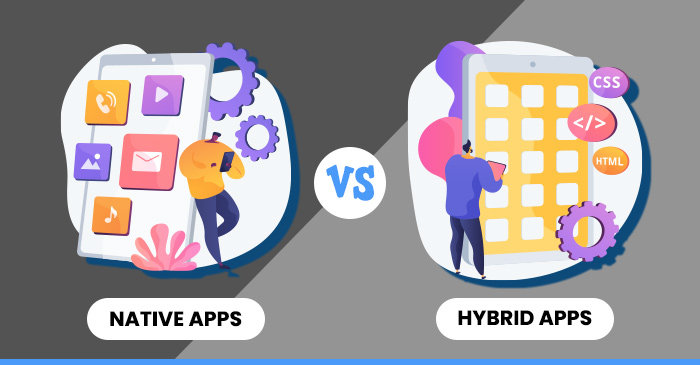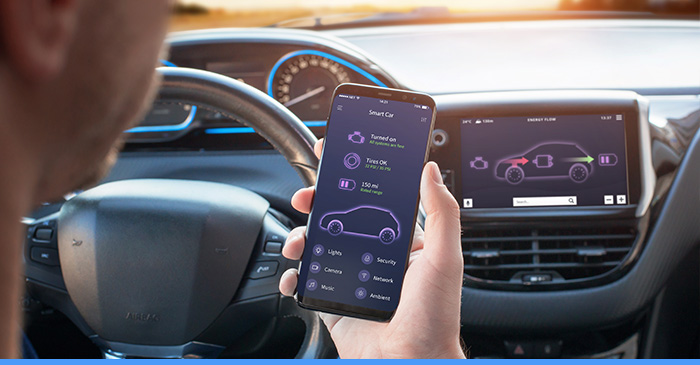
As the world progresses towards digitalization and e-commerce, choosing the right mobile application has become more crucial. There are many types to choose from, i.e., native apps vs. hybrid apps vs. web apps. But you may wonder which app is better in this race of native vs. hybrid apps. It depends on your business type, goals, the app features required, and your aims to take your business forward.
Defining Native Apps vs. Hybrid Apps
Native Apps for Mobile

Native apps are mobile programs designed specifically for an operating system, such as iOS or Android. This is usually what comes to mind when we think about smartphone apps. They are downloaded from Google Play or the App Store, then installed on a smartphone.
The fact that native apps are created for certain devices sets them apart from mobile web and hybrid apps. For instance, Objective-C or Swift are used to write iPhone apps, while Android apps are written in Java. A native app has the benefit of being the fastest and most dependable in terms of user experience.
In native apps vs. hybrid apps, the former can communicate with all of the functionalities of a device, including the microphone, camera, GPS, device storage, etc., because they are created utilizing an operating system’s SDKs. Costs associated with development and maintenance, however, represent the drawback. If you wish to design your app for several platforms, you will need a larger budget, which applies to any ongoing upgrades required to keep your native software current.
Hybrid Apps for Mobile

Applications that are hybrids combine elements of native and web programs. They can be downloaded from app stores and viewed through web browsers. They are made with HTML5 and JavaScript, just like web apps. They are mainly web pages wrapped in a WebView-enabled mobile app. They can also use a device’s built-in functions, though. They were made using cross-platform frameworks, including React, Ionic, Sencha, and Xamarin.
The advantage of hybrid apps is that they are frequently easier and quicker to build than native apps. They also require less maintenance. However, the performance of your hybrid app is unaffected by the user’s browser’s speed. This means that a hybrid app performs slowly compared to a native app.
Difference Between Native App vs. Hybrid App
To start with, there is no clear-cut course you should take. It depends on several variables, such as how your target audience intends to use the finished work. However, there are glaring distinctions between the two that could help you decide.
The primary distinction between native apps vs. hybrid apps is that native apps are created for iOS or Android. However, hybrid apps are created with the same codebase and can run on any operating system. In other words, your developers will need to create separate codes for the iOS and Android apps if you want a Native App.
Although doing so can initially increase the cost of developing a native app, you need to consider more than just the cost when considering the features your app will require. Even if they need more development time, native apps are usually more adaptable.
Let’s examine the advantages and disadvantages of native apps vs. hybrid apps.
[ninja_tables id=”1633″]
Wrap-up
Every developer ponders what an advantage of using web apps is. The simplest answer is, based on the objectives of your project; you should decide whether to use native apps vs. hybrid apps.
Arturo Digital is a creative and custom mobile app development company in the US. For startups, businesses, and partners, it offers application design and development services on the iOS and Android platforms. Contact the Arturo Digital team, and we’ll get back to you to go over the applications that will work best for your brand.
Recommended Reading: Progressive Web Apps vs. Native Apps: What’s the Difference?